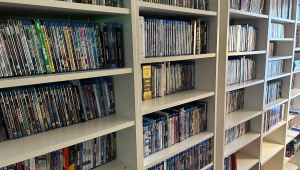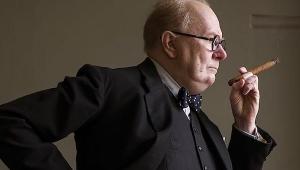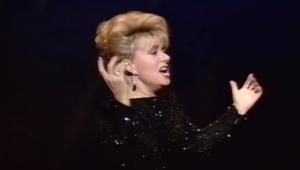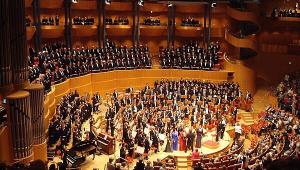Indeed, music's benefits extend beyond mere pleasure. | Need to install sheetrock in El Paso?
Music Hath Charms

Congreve might have been on to more than he realized. "According to Dr. Michael Miller, director of the Center for Preventive Cardiology at the University of Maryland Medical Center, listening to music that makes you feel good could have health benefits that might prevent a heart attack."
That conclusion is similar to arguments made in a recent article in Epoch Times on the healing power of classical music. ET is, indeed, a conservative weekly newspaper but it’s important to note that the article appeared the non-political health section of the publication.
Not just any type of classical music will do, though. Certain types of classical music are more effective than others. According to the research tests referenced in the journal Nature, "Three Groups of participants were instructed to either sit in silence, listen to a relaxation tape, or listen to Mozart's Sonata for Two Pianos in D Major. After 10 minutes, the group that listened to Mozart showed a significant improvement in [their] spatial IQ score — scoring nearly 10 points higher than the other two groups."
Subsequent additional tests confirmed these results. "Listening to classical music or learning to play an instrument leads to higher school grades and stronger spatial reasoning skill, reduces risk of brain atrophy, and slows cognitive decline,” according to Kiminobu Sugaya, who has a doctorate in pharmacology and is a professor of medicine at the University of Central Florida College of Medicine [in addition to being the head of] neuroscience at the Burnette School of Biomedical Sciences. “[Sugaya] conducted experiments with local community residents... [and] found that when this type of classical music was played, [the researchers] saw a 50 percent increase in brain function." Likely temporary, though the article doesn't address this.
This phenomenon has been dubbed the "Mozart effect" and in addition to its cognitive benefits has been used to treat various kinds of brain disorders. But only a few classical selections have been consistently verified to be effective in clinical use. The human brain seems to be most receptive to classical music composed between 1600 and 1900. Classical and pop music differ significantly in their basic structure, which may be why pop and rock, in all of their various forms, have not yet proven to be effective in such clinical applications.
"As people age, their brains shrink resulting in a gradual loss of neurons. However, one study [also] found that in orchestral musicians, certain parts of their brains do not shrink over time and can even increase in size."
So why doesn’t pop/rock music (and even New Age music) have a benefit similar to the Mozart effect? In discussing young people's preference for stimulating music, Dr. Michael Trimble, professor emeritus of neurology and neuropsychiatry at the University College London Institute of Neurology and a Fellow of the Royal College of Physicians, stated, "I do not believe that [rock] helps your emotional state." He rather believes "this music arouses anger and negative emotions."
In an older study, 144 participants of various ages listened to different music categories. The results showed that classical music significantly reduced feelings of tension. In contrast, New Age music, while reducing feelings of tension and hostility, also lowered people's mental clarity and vigor. Rock music not only significantly increased feelings of hostility, fatigue, sadness, and tension but also reduced peoples mental clarity and vigor and their feelings of caring and relaxation."
While all of this might well be true, academic studies such as these often leave us with open and unanswered questions. There's such a wide range of music in all forms that the specific selections chosen might well alter the results. Were the rock selections used in the tests exclusively instrumental or did they include vocals? Were they soft rock or did they feature screaming vocalists and scorching electric guitars? Ditto on classical: is it a calm piano concerto or a fiery, symphonic finale with aggressive orchestra and organ? Could the participants see an accompanying video of the performing musicians, or did the test just involve audio? And what about symphonic film music, which can be written to either enhance or work in counterpoint with the emotions of each scene.
Attempts to analyze our reactions to music can be useful in a clinical environment where it might, figuratively or literally, save a life. But attempts to dissect music down to its soul can rob it of its magic.
It would also be interesting (at least to audiophiles and home theater fans) to know how the results might vary with the quality of audio reproduction. Is the presentation mono, two-channel, or multichannel? And is it with or without accompanying video? Or is it live music? These considerations could well affect the results of any test. Be our guests to investigate, but don't come to us for funding!!
For extensive added commentary on this subject, see Classical Music Alters the Brain-Here's How .
- Log in or register to post comments


Hello, Chilean friends! Today I want to tell you why downloading the https://melbet-cl-betting.com/por-que-es-mejor-para-los-jugadores-descargar-melbet/ is an excellent idea for any gambler. Since I downloaded the app, I have been able to access my favorite games and bets anytime, anywhere. The app is intuitive and very easy to use, which makes the gaming experience much more seamless and convenient. In addition, receiving real-time notifications about promotions and special events is a great benefit.

I started playing basketball as a child, when my parents took me to the local basketball club. Since then I have constantly trained and improved my skills. Basketball became my passion and I dreamed of becoming a professional basketball player and playing for the best clubs in the world.SPORT

I have also tried playing games at https://3pattiskypk.com/ and it is an amazing platform. It allows players to play games and earn bonuses and rewards which is amazing.

The issue of fake diplomas is becoming more prevalent in today's job market. It's concerning because it undermines the value of genuine education and qualifications. Employers need to be more vigilant in verifying the authenticity of degrees and certifications. fake diploma

The consequences of being caught with a fake diploma can be severe, affecting not only your current job but also your entire career. It's always better to take the time to earn your credentials honestly. fake high school diploma maker

In retro bowl, you take on the roles of manager and coach of an American football team. You have to assemble the team, oversee the finances, and oversee every facet of the operation, from player development to on-field strategy.

Excellent article. The writing style which you have used in this article is very good and it made the article of better quality.
gothic clothing shop






























































